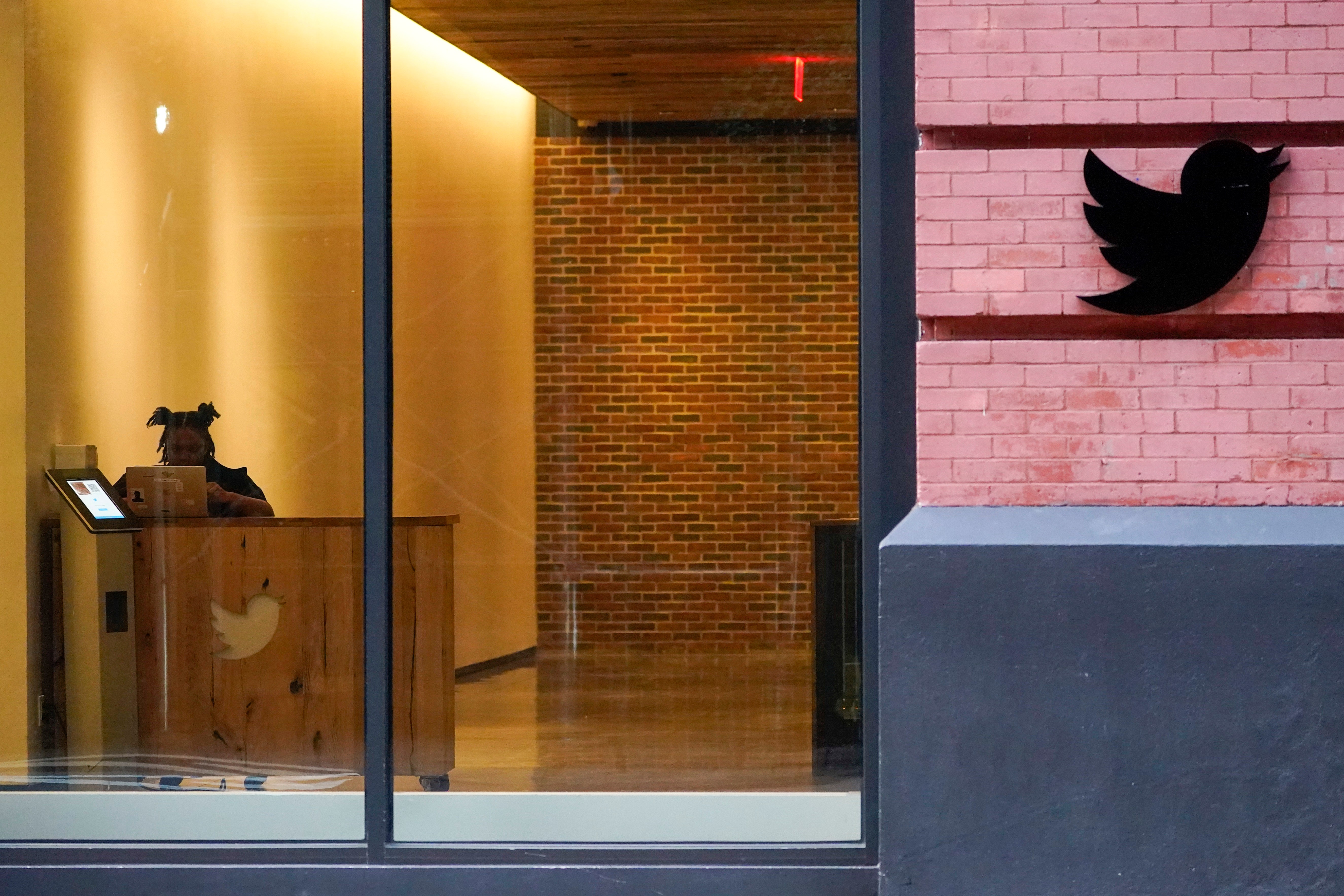Here’s a nightmare scenario: You’re enjoying your hard-earned summer vacation when you realize your phone or laptop is missing.
Beyond the cost of replacing it, you may have lost years of photos and other files — and opened yourself up to some pretty scary consequences.
One place you don’t want someone snooping is your inbox. Don’t create folders with names like “medical documents” or “tax info.”
companies is one of the most important things on your devices, especially if you’re a Gmail user. There are simple ways to ensure yours doesn’t end up in the wrong hands.
Just how detailed is data tracking?
Google’s tracking is mainly for its benefit or for companies that pay big money to target you with ads based on your data.

The Google internet homepage is displayed on a product at a store.
(REUTERS/Neil Hall)
Speaking of, have you ever searched for your name online and seen how many data broker sites your information is floating around on? I get so many requests for steps to remove this information that I started a new series on my website called Opt-Out Tuesday. Each week, we give directions to erase your profile from these sites.
You can take back a little bit of your privacy from sites like BeenVerified, PeopleFinders, SpyFly and ZabaSearch.
ELON MUSK BREAKS TWITTER SILENCE WITH PHOTO OF THE POPE, EX-WIFE IN ITALY
You might not realize how granular that information gets. An advertiser doesn’t only know you’re a mom of three from Florida or a marketing exec who lives in Austin. A dossier on you includes your financial bracket, interests, political leanings, shopping preferences and so much more.
I wanted to know more about this, so I sat down with an advertising CTO and recorded a podcast.
Data tracking is big business, after all. How big? Alphabet, Google’s parent company, makes about $420,000 every minute. Crazy, right? Not all that money comes from advertising, but it’s the most significant slice of the pie.

(Associated Press)
Luckily, some of Google’s tracking can help you.
Exclusive limited-time offer: As a special thank you to my readers, I’m giving you a free Windows or Mac guide full of tips, tricks and great downloads. Claim your free Windows or Mac guide now at my website at Komando.com/FreeGuides.
Check your account activity
I talk to a lot of people who have been scammed, and in almost all cases, they didn’t realize something was wrong until it was too late. A friend reaches out to ask, “companies?” or you see emails in your outbox you didn’t send. Or worse, you notice strange charges to your credit card or get a notice about a loan in your name.
However, there are ways to spot bad actors before they can do too much harm. This tip also works for spotting snoops, you know. Is a friend or family member poking around your Google or Gmail account? Here’s a way to find out.
- Go to google.com/devices. Sign in to your account if you aren’t already.
- Here, you’ll see a list of devices. These are the computers, smartphones and tablets you are currently signed into or have been signed into within the last 28 days.
 Video
Video
You will see the same device multiple times because each session (or instance you logged in) is recorded. That’s nothing to worry about.
Along with your current sessions, you may also see devices that have been inactive for a long time, topics you don’t use anymore. You can sign these devices out remotely.
- Just click the one you want, then sign out. This will remove access to your Google account from the device entirely.
You can also use this page to find some connected devices, like Android phones. That’s handy.
KYRA SEDGWICK INJURES HERSELF TRYING VIRAL ‘FOOTLOOSE’ DANCE WITH KEVIN BACON
- Click on a device, then select find device, and you’ll be taken to Google’s Find My Device page.
What happens if you see a computer, phone, tablet or device you don’t recognize?
- Click the device and choose Don’t recognize something? Or Sign out. Again, this will sign the device out remotely.
Next, you need to protect your account. It’s time to change your password to make sure whoever logged in can’t do so again. Don’t reuse an old password or choose something easy to guess. This is the time to pull out all the stops.

Computer keyboard
(iStock)
Remembering solid passwords is tough, so a password manager may be your best bet. The nice thing is these programs can do more than remember your logins.
Want your dead grandmother to read you a story? If Amazon’s new Alexa AI feature comes to life, you could clone dead voices. Plus, hackers are taking over hot tubs, Anna Sorokin is selling NFTs and the FBI warns of crypto fraud on LinkedIn. Oh, and you won’t believe how much money Big Tech companies make per minute.
Check out my podcast “Kim Komando Today” on Apple, Google Podcasts, Spotify, or your favorite podcast player.
Just search for my last name, “Komando.”
CLICK TO GET THE FOX NEWS APP
What digital lifestyle questions do you have? Call Kim’s national radio show. You can listen to or watch the Kim Komando Show on your phone, tablet, television or computer.
Copyright 2019, WestStar Multimedia Entertainment. All rights reserved.
Learn about all the latest technology on The Kim Komando Show, the nation’s largest weekend radio talk show. Kim takes calls and dispenses advice on today’s digital lifestyle, from smartphones and tablets to online privacy and data hacks. For her daily tips, free newsletters and more, visit her website at Komando.com.
 Iktodaypk Latest international news, sport and comment
Iktodaypk Latest international news, sport and comment






